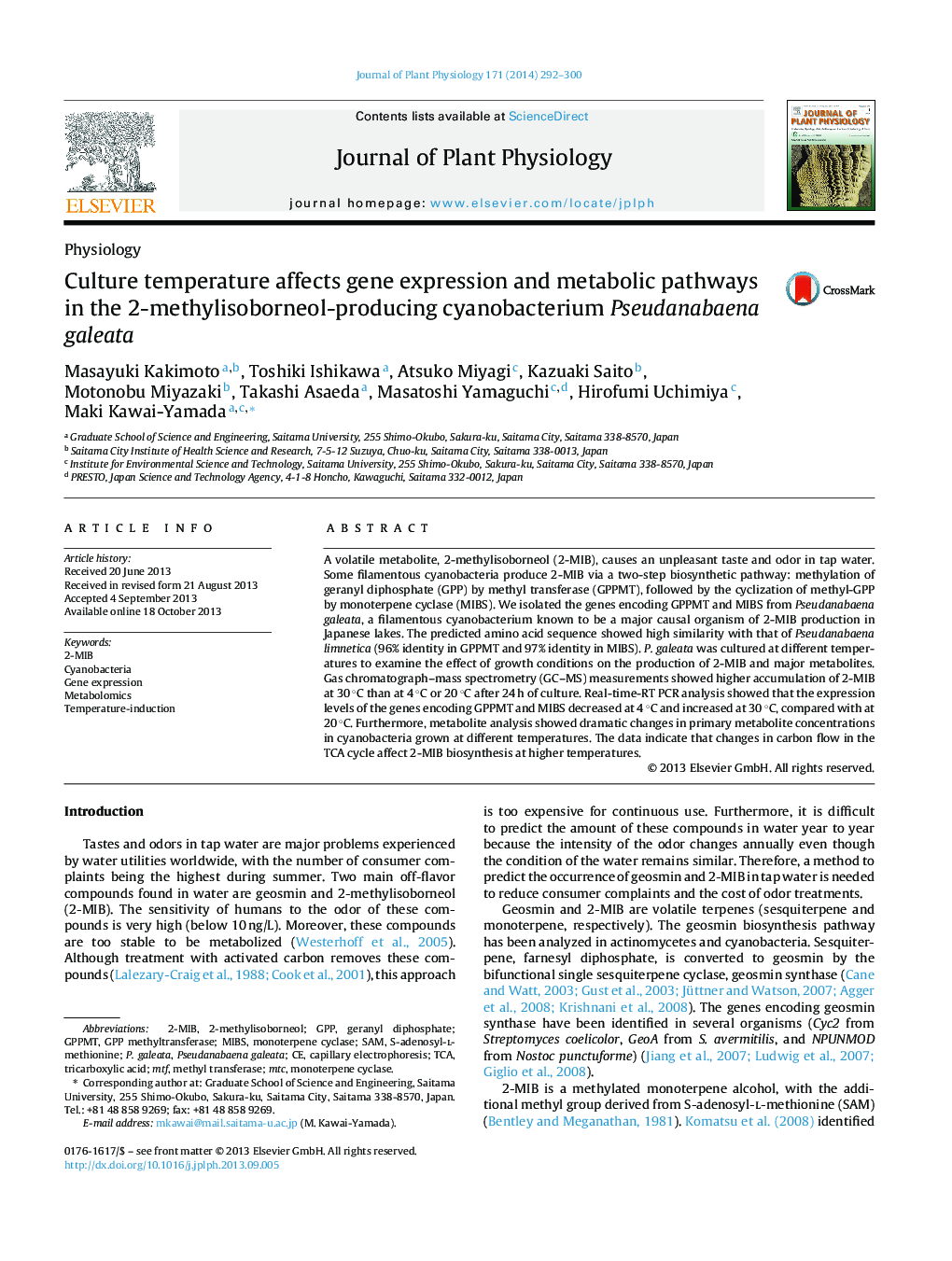| Article ID | Journal | Published Year | Pages | File Type |
|---|---|---|---|---|
| 2055878 | Journal of Plant Physiology | 2014 | 9 Pages |
A volatile metabolite, 2-methylisoborneol (2-MIB), causes an unpleasant taste and odor in tap water. Some filamentous cyanobacteria produce 2-MIB via a two-step biosynthetic pathway: methylation of geranyl diphosphate (GPP) by methyl transferase (GPPMT), followed by the cyclization of methyl-GPP by monoterpene cyclase (MIBS). We isolated the genes encoding GPPMT and MIBS from Pseudanabaena galeata, a filamentous cyanobacterium known to be a major causal organism of 2-MIB production in Japanese lakes. The predicted amino acid sequence showed high similarity with that of Pseudanabaena limnetica (96% identity in GPPMT and 97% identity in MIBS). P. galeata was cultured at different temperatures to examine the effect of growth conditions on the production of 2-MIB and major metabolites. Gas chromatograph–mass spectrometry (GC–MS) measurements showed higher accumulation of 2-MIB at 30 °C than at 4 °C or 20 °C after 24 h of culture. Real-time-RT PCR analysis showed that the expression levels of the genes encoding GPPMT and MIBS decreased at 4 °C and increased at 30 °C, compared with at 20 °C. Furthermore, metabolite analysis showed dramatic changes in primary metabolite concentrations in cyanobacteria grown at different temperatures. The data indicate that changes in carbon flow in the TCA cycle affect 2-MIB biosynthesis at higher temperatures.
